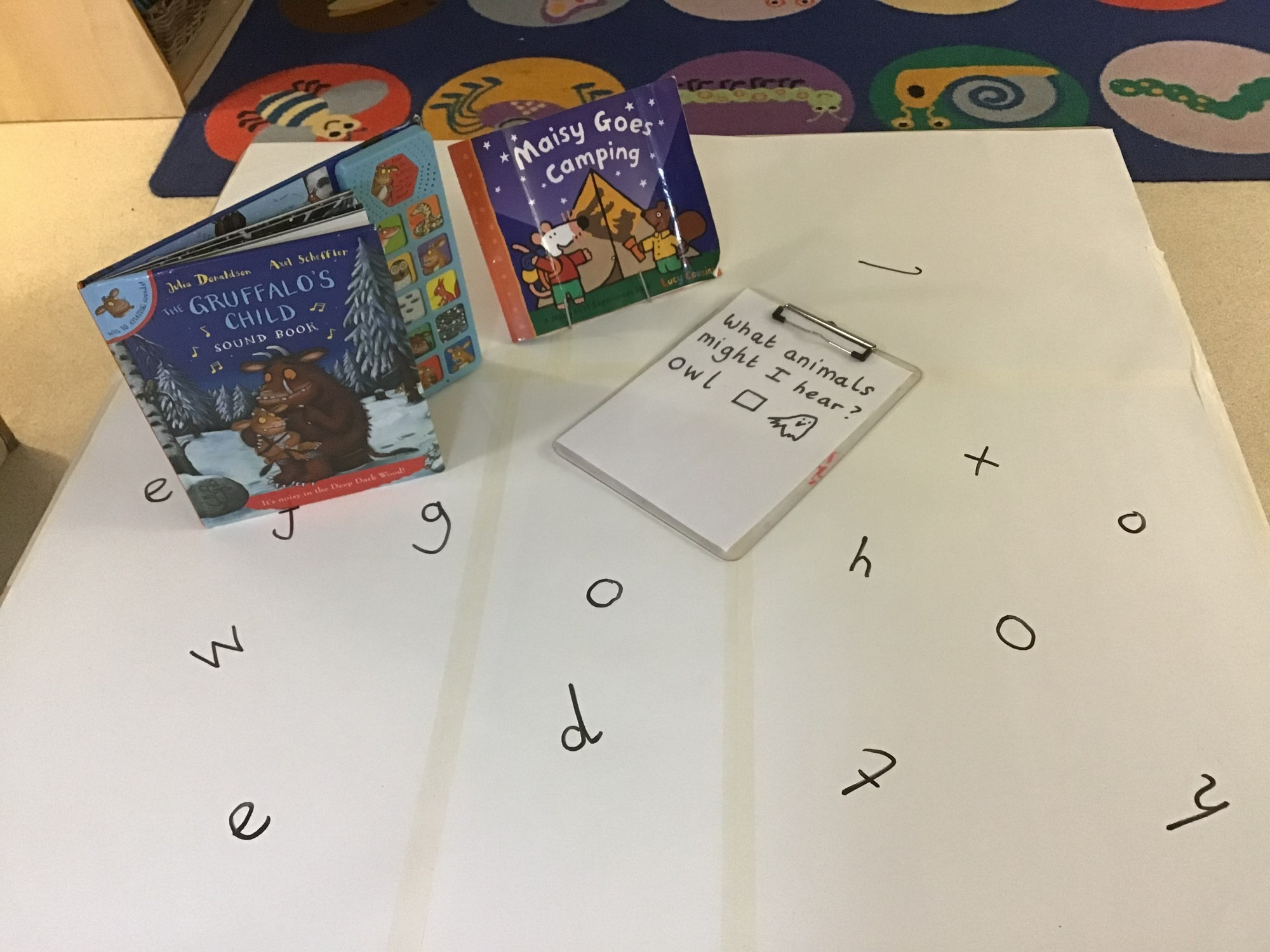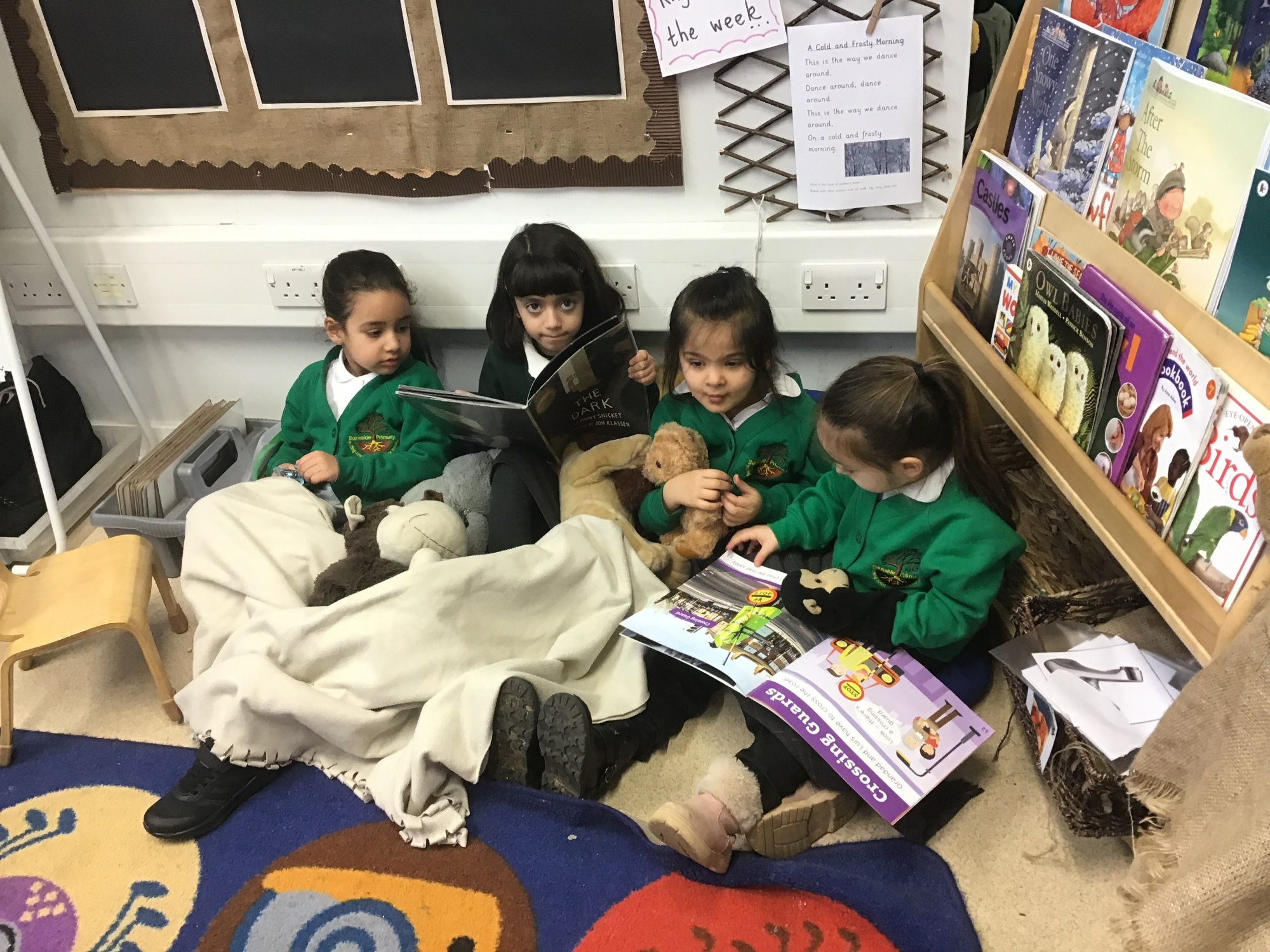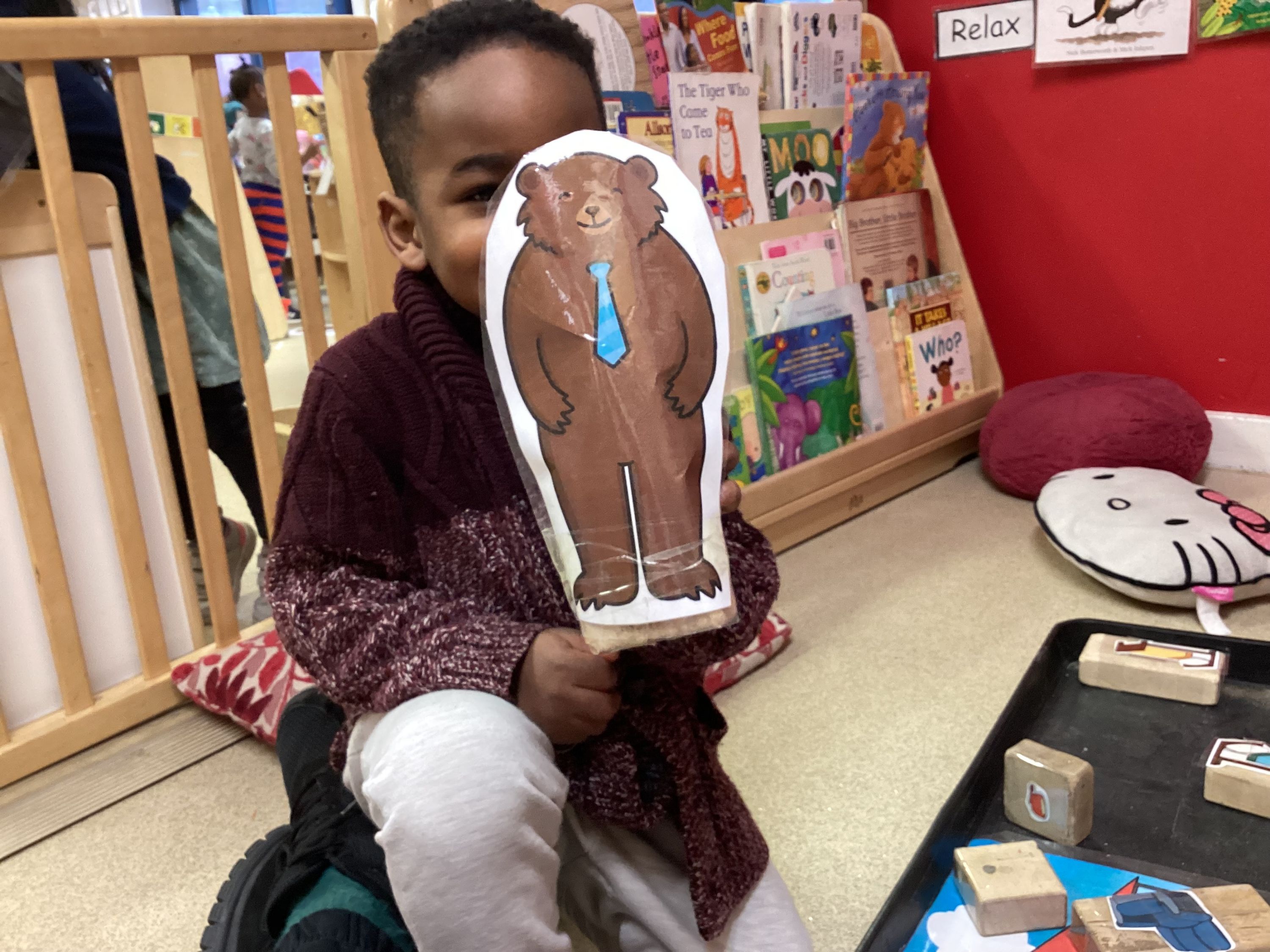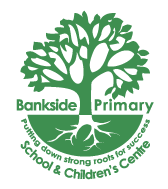English



Early Reading and Phonics
At Bankside Primary we aim to put down Strong Roots for Success, high quality teaching and learning of phonics is central to this aim. Language and communication development is at the start of this journey in our Nursery provision and develops into the teaching of phonics in Reception and Key Stage One. At Bankside Primary, we use the Sounds-Write programme to deliver our early reading and phonics learning. This develops into a spelling based programme as children move into Key Stage Two. For children who join us mid-phase and are new to learning English, we use the Sounds-Write programme to accelerate their progress with the proficiency of English. We aim for our phonics and early reading curriculum to enable children to leave Key Stage One with the storng roots to develop their skills and knowledge in reading and deepen their understanding of language and vocabulary.
Intent
Phonics (Reading and Spelling)
We know that all children can- and will- become fluent readers if they are taught using a systemic, synthetic and linguistic phonics programme to high standard, every day, and we also recognise that this journey may take longer for some than it will others. Therefore, we use the Soundswrite approach across all key stages and attainment stages to develop reading and spelling skills because the scope and sequence offered ensures access for children at every level.
The approach is applied across the curriculum from Reception upwards and so from an early age, our children learn that the alphabetic code represents the sounds which they speak; linking the spoken word to important listening skills, applying these to reading and spelling.
Implementation
Foundational skills in Nursery and Rainbow Provision
Our ‘Communication and Language’ and ‘Literacy’ curriculums are planned developmentally and teach essential the ‘pre-reading’ skills of attention, organisation and oral blending by:
- sharing high-quality stories and poems
- learning a range of nursery rhymes and action rhymes
- explicit teaching and modelling of high-quality language
All children are taught to orally blend using the ‘Ann Sullivan: Phonics for SEN children’ linguistic phonics approach which compliments Soundswrite.
Daily Phonics in Reception, Year 1, Year 2 and Year 3
We teach phonics for 30 minutes a day in Reception, Year 1, Year 2 and Year 3. Sessions are taught as a whole-class. We follow the Soundswrite scope and sequence:
- Reception children learn the ‘Initial Code’ (words containing VC and CVC structure, progressing to CCVC, some digraphs and then to words using the CCVCC/ CCCVCC structure).
- Year 1 children learn the ‘Extended Code- First Spellings’ (introducing common vowel digraphs amongst other spellings)
- Year 2 and Year 3 children learn the ‘Extended Code- More Spellings’ (extending children’s code knowledge to less common spellings of sounds)
Additional support for vulnerable readers
We recognise that if children are not reading consistently and with fluency within the Extended Code by the time they reach Year 3, they will encounter significant challenges as they progress through school. In response to this, we assess children half-termly and using this data, give those who require ‘keep-up’ support access to targeted 1:1 Soundswrite Initial Code sessions or 1:1 Reading Mastery.
We also recognise that for some children, it can be a more complex task to develop the skills required to read and spell and we have taken pride in learning and developing our practice and pedagogy in this area. These children (no matter their age) are provided with targeted or personalised intervention which addresses their primary difficulties. These sessions are delivered by practitioners with significant training in SEND reading from external professionals.
Impact
The teaching and learning of reading is monitored constantly. Teachers use summative and formative methods of assessment, and the Early Reading Lead uses a mixture of qualitative and quantitate data to develop a whole-school picture. Provision is reviewed formally every half term and informal conversations happen on a daily basis.
Assessment for learning
- Whiteboards at the earliest stages of phonics
- Teachers circulate the room ensuring interactions with every child
- Consistent error corrections and scripting
- Review lessons planned responsively to the needs of the class and ensure ‘spaced practice’ of prior learning
- All staff working with an Early Reader completes a weekly summary report on the progress of the children, to ensure prompt response from the Early Reading Lead, where required.
Statutory Assessment
- All children who meet the criteria in Year 1 sit the Phonics Screening Check and resit in Year 2 if they don’t meet the required standard.
Book Change Days
Please ensure your child returns their reading book and library book on the days below so they can be issued with new ones.

